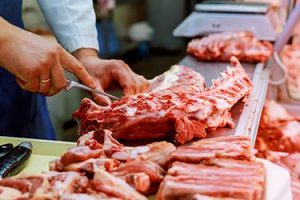
Restaurant Food Waste Recycling
Food waste is a significant concern for restaurant owners and kitchen managers, as it not only impacts the environment but also adds up as a substantial expense. However, with careful planning, strategic techniques, and employee engagement, it is possible to minimize food waste costs while maintaining high standards of quality and customer satisfaction.
In this article, we will explore effective ways to tackle restaurant food waste and optimize your restaurant’s operations, ultimately leading to a healthier bottom line. We also hope to partner with your restaurant, kitchen or food truck to be your trusted restaurant grease recycler.
Start With Accurate Inventory Management:
One of the fundamental steps in reducing food waste costs is to establish a robust inventory management system. Keep track of your stock levels, monitor expiration dates, and analyze usage patterns. This enables you to order and utilize ingredients more efficiently, preventing overstocking or the risk of spoilage.
Precise Menu Planning Matters:
Crafting a well-thought-out menu is essential to minimize food waste. Consider the ingredients you use across multiple dishes to maximize their usage and reduce the chances of surplus items going unused. Additionally, regularly assess your menu to identify underperforming dishes and either revamp them or remove them altogether, minimizing unnecessary inventory and waste.
Portion Control and Staff Training:
Implement portion control practices to ensure consistency and avoid excessive food waste. Provide comprehensive training to your kitchen staff on portion sizes, plating techniques, and the importance of minimizing food waste. By equipping your team with the necessary knowledge and skills, you empower them to contribute to waste reduction efforts.
Utilize Food Preparation Techniques:
Optimize your kitchen operations by employing effective food preparation techniques. For instance, vegetable trimmings can be transformed into stocks or utilized in sauces, while bones and meat scraps can be used to create flavorful broths. Encourage creativity among your culinary team to repurpose and utilize all edible parts of ingredients effectively.
Implement a First-In, First-Out (FIFO) System:
To minimize the risk of food spoilage and waste, adhere to the first-in, first-out (FIFO) system for stock rotation. Ensure that older ingredients are used before newer ones, reducing the likelihood of products expiring or becoming unsellable due to poor storage practices.
Analyze and Monitor Food Waste Data:
Track and analyze data related to food waste to identify patterns and areas for improvement. Keep records of the types of food wasted, reasons behind it, and the frequency of waste occurrence. By understanding these trends, you can make informed decisions and implement targeted strategies to address specific issues.
Collaborate with Local Organizations:
Consider partnering with local charities, food banks, or composting facilities to redirect excess food. Donating surplus edible items not only helps reduce waste but also fosters positive relationships within the community. Composting can be an environmentally friendly solution for scraps and unusable food, contributing to sustainable waste management practices.
Engage Customers:
Encourage customer engagement by educating them about your commitment to minimizing food waste. Display signage or include messages on menus that highlight your restaurant’s waste reduction efforts. Offer customizable portions or doggy bags to empower customers to take leftovers home, promoting both waste reduction and customer satisfaction.
Millstadt Rendering Can Help Reduce Food Waste Expense
Minimizing food waste costs requires a comprehensive approach that encompasses accurate inventory management, precise menu planning, portion control, staff training, creative food preparation techniques, data analysis, collaborations with local organizations, and customer engagement. By implementing these techniques, restaurant owners and kitchen managers can reduce waste, operate more sustainably, and achieve financial savings while maintaining high-quality standards. Embracing these strategies will not only benefit your bottom line but also contribute to a more sustainable and environmentally conscious restaurant industry.
Meat Trimming Removal
Millstadt Rendering Company is a full-service rendering plant that processes used cooking/restaurant oil and grease, animal by products, bones, and fat. The staff and management are dedicated to providing dependable service without a contract.
Earn Money From Restaurant Grease Recycling
We regularly and fairly pay restaurant owners the rebates they deserve for handling their grease removal the environmentally-responsible way.
Full-Service Rendering and Grease Recycling
We own our own and operate our rendering plant which means that we don’t subcontract or rely on third-parties or pickup to process your restaurant grease. Restaurant needs are met by Millstadt Rendering staff and equipment.
Call us at: 618-538-5312 or simply fill out the form on this page to learn more.
